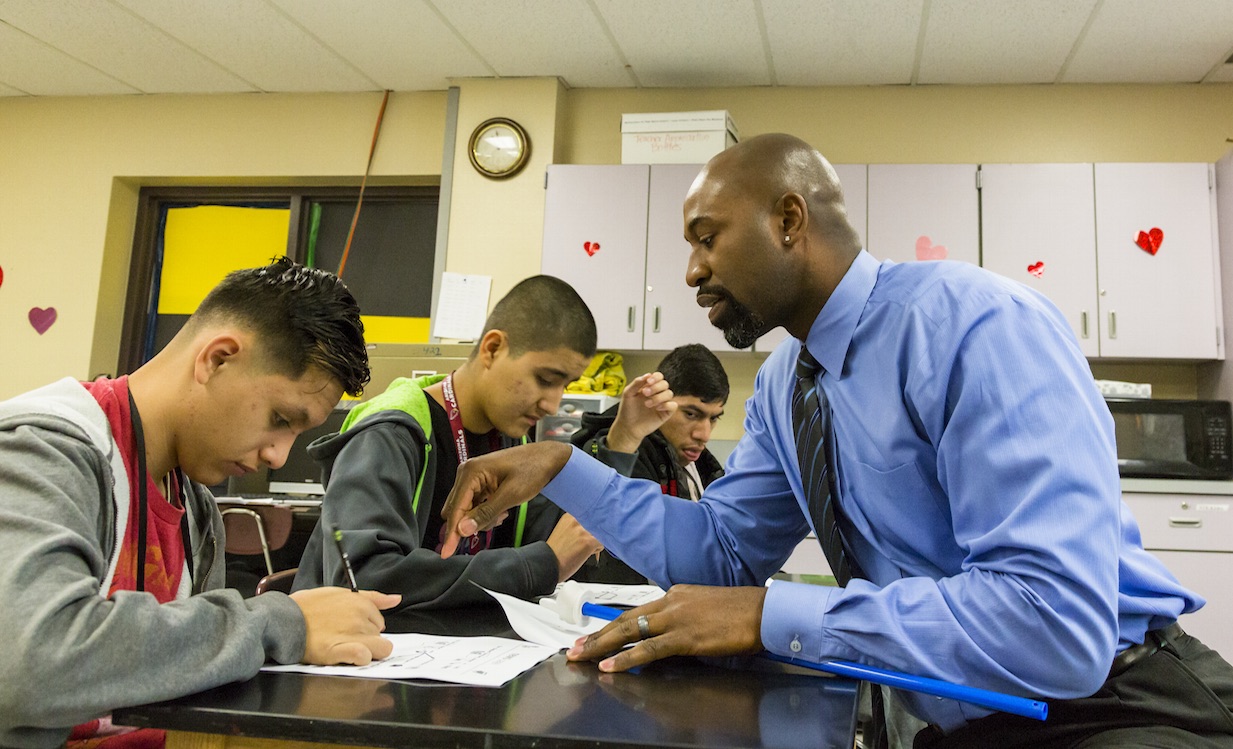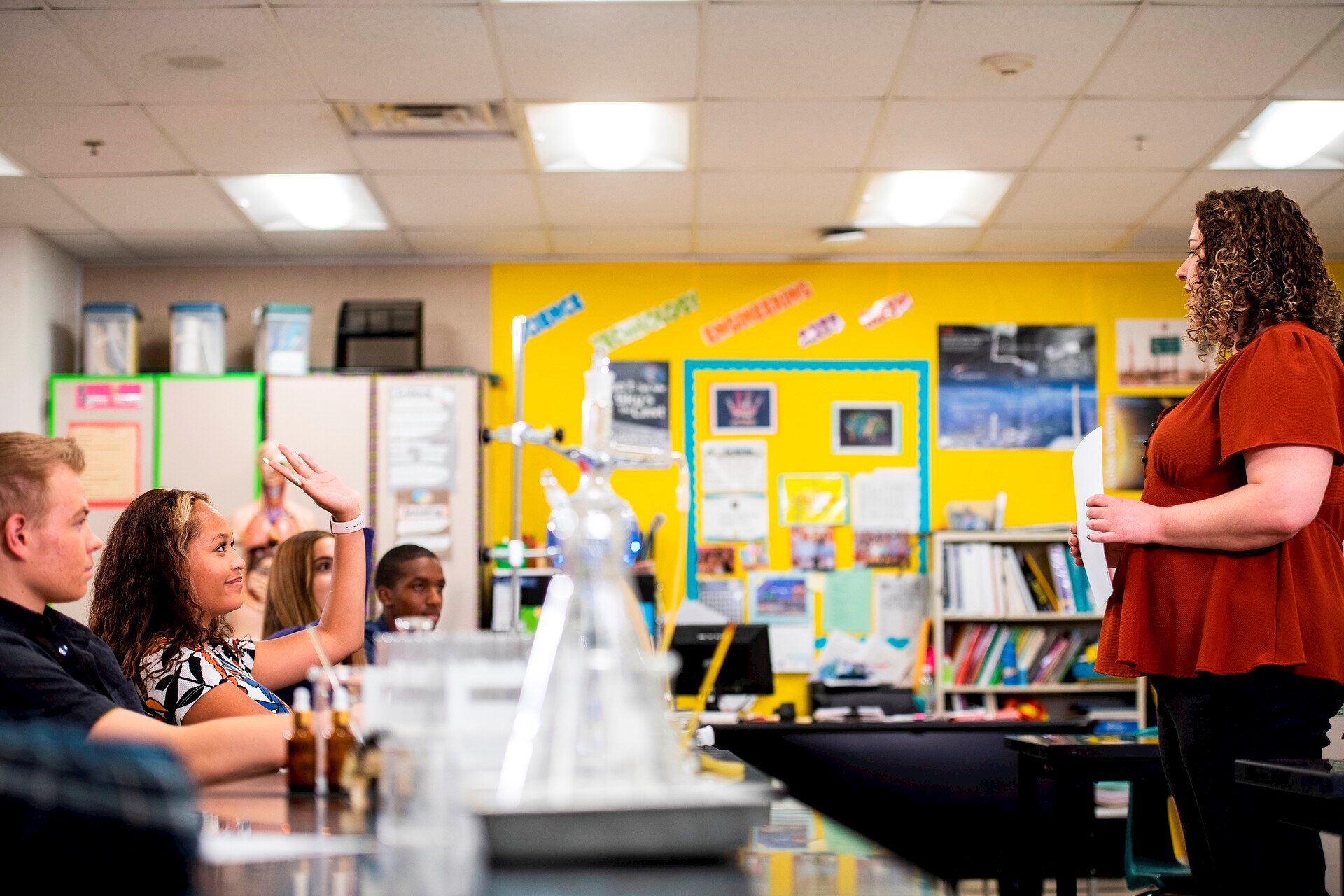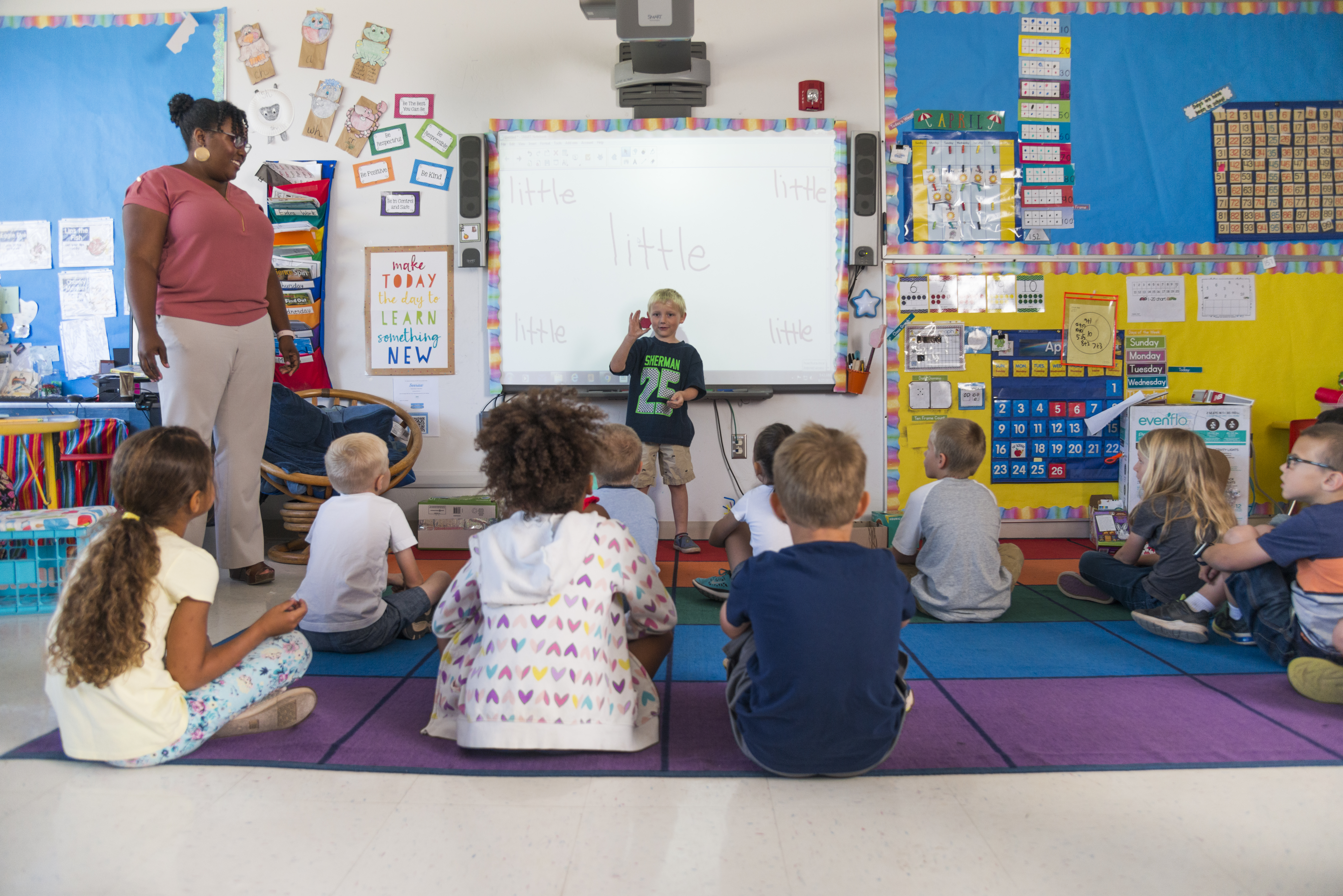August 3, 2017
The Beginner’s Guide to Planning the First Week of School
First-time teacher? These 10 tips will make your first week smooth sailing.
As a first-year teacher, to say I was intimidated planning my first week of school is a serious understatement.
I was terrified.
I nodded along in teacher training and staff summer development, taking pristine notes, and attempting to soak up the wisdom of the veteran teachers. But all the while, I was thinking to myself, “No pressure, but you only get one first day and one first week of school per year. Don’t mess it up.”
It’s likely I jinxed myself with that caustic inner dialogue. My first day alone started with the trifecta of back-to-school nightmares (I slept through my alarm, forgot pants, and got lost on the way to my classroom), escalated to spilling hot coffee on my brand-new-but-really-uncomfortable dress, and triumphantly peaked five minutes after the first bell when one of my students fainted. Fainted! I wound up teaching outdoors on the lawn for most of the morning — in the full glory of Arizona’s August — while paramedics took over my classroom.
Yikes.
The good news? Your first week is almost guaranteed to go better than mine did. You have SO got this. We’re here to cheer you on and provide some tried-and-true pointers to help you rock your first week back and set sail toward a truly awesome first year.
- Plan it out. Yes, no matter how overwhelming it may seem, you need to map out your year of teaching. Review the curriculum and standards for your subject/grade level and plan out units and themes for all four quarters. Once you’ve got your big-picture map, you can set to writing out week-by-week lesson plans. And as far as planning goes for that first week or two…
- …more is more. There’s a lot of teachers who live by this rule — and for good reason. Over-planning for the first few weeks ensures that you won’t come up empty handed; plus, it’s easier to bump something to the next day than scramble for a backup plan. It’s wise to have lesson plans in place for the first two weeks before school starts, with all necessary materials stocked, copied, and ready to go.
- Organize now, thank yourself later. You’ve got a lot to juggle; make your life easier by getting organized. Our suggestion? Set up some teacher binders. Check out our checklist for our top six must-have binders.
- Get to know your school. That quick tour your new principal took you on? You should probably do another one on your own, noting the locations of restrooms, the media center, the cafeteria, and the nurse’s office — and their respective distances from your classroom. Take your time and chat up support staff members along the way; they’re a new teacher’s best friends. While you’re at it, browse your school’s website and review campus-wide policies one more time.
- Set up your classroom sooner than later. Sidestep unneeded stress by heading into your classroom ahead of the rush and arrange your space with students in mind. It takes time and focus to set up furniture, organize seating arrangements, and decorate — especially for the first time. Get all of your supplies in order and be mindful (but flexible) with where you place them. Count and inventory class sets of supplies, like student technology or nvarchar(max)books. And trust us: Label everything.
- Pack a personal survival kit. Plan for minor catastrophes by putting together an in-case-of-emergency bag for yourself. Include safety pins, comfortable shoes, a granola bar, sunblock, tea bags, toiletries — whatever you know might save your day… one day.
- Get kids to work right away. Sure, having kids get down to business on the first day helps set a productive tone — but it is also a logistical strategy that frees you up to take attendance, make personal connections around the room and deal with any first day glitches like scheduling errors or lost students.
- Don’t skip the introductions. Designate time in between reviewing expectations and practicing routines for kids to have structured, non-threatening interaction, collaborate, and get to know their peers. It’s time well spent building class culture. Prep several activities and sprinkle them throughout the week.
- Have a procedure — for everything. Start with this list or pick a colleague’s brain for hers or his. No matter how old your students are, communicate your expectations for routines in a variety of ways and spend the first week(s) practicing them until they stick. Trust us — the time invested getting these down pat will save loads later.
- Build rapport with parents from the start. Strong relationships with parents are essential for all teachers, but even more so for first-timers. Start off on the right foot with a welcome letter sent home (bonus if you are able to do this before school starts!). Include info about yourself with contact info, a list of needed classroom supplies, an overview of rules and expectations, your class schedules, and a volunteer sign-up sheet.
- Assess. Find time in the first week to do a round of quick assessments of your students and make observations. See what they already know both from the previous year and concerning what skills you’re planning on teaching so that you can differentiate as necessary. Note individual behavior toward you and classmates, and reflect on any changes you might need to make in our classroom management.
- Hold on tight. The first day and week of school go by so fast. As important as they are, you’ll need to buckle in and roll with the punches as you set the stage for the rest of the year.
And my personal top three tips? Get to bed early the night before, double check the lid on your coffee mug, and don’t forget to write the campus nurse’s extension on a sticky note next to your phone. Add those to this list of vetted expert strategies and you’ve got a true recipe for success.












